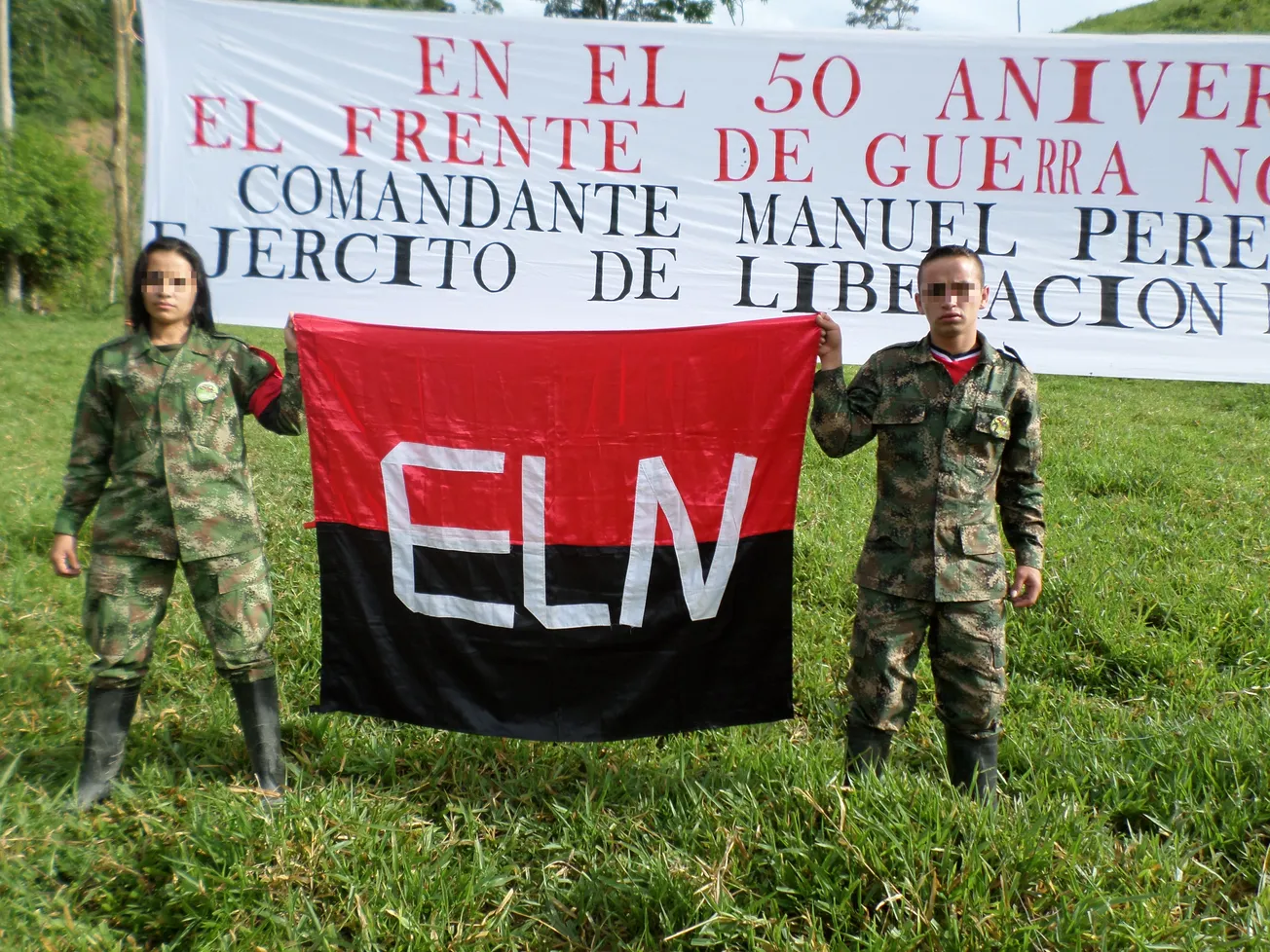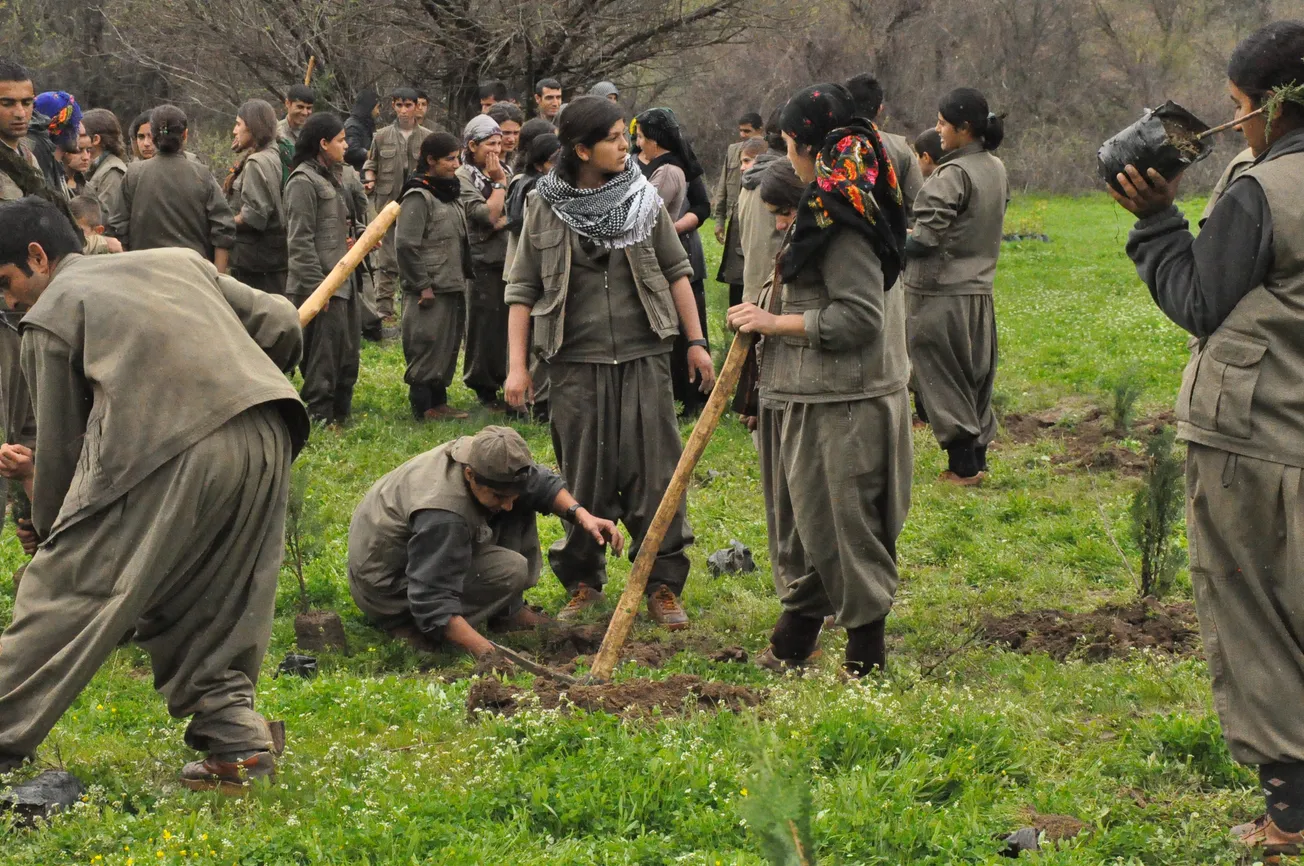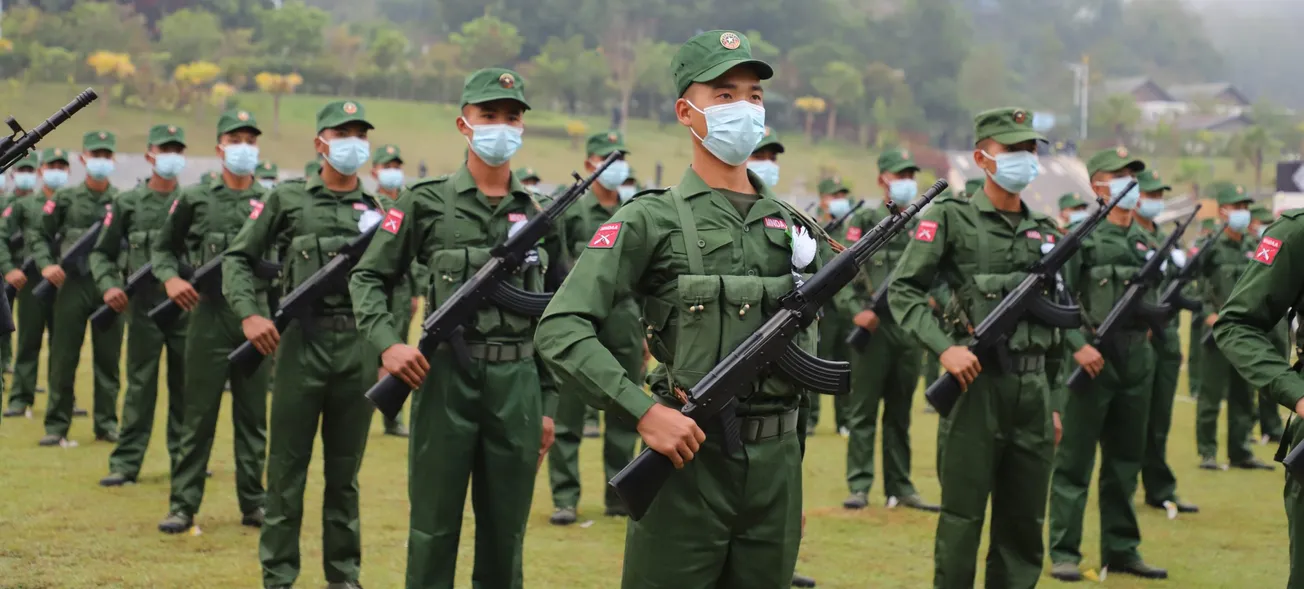Overview
The National Liberation Army (Ejército de Liberación Nacional, ELN) is a Marxist-Leninist guerrilla group active in Colombia since 1964. It is currently Colombia's largest remaining rebel group and poses a significant security threat. The ELN combines a mixture of Marxist ideology and liberation theology, advocating for a communist revolution and social justice. While its original goals centered on overthrowing the Colombian government to establish a popular leftist regime, the group has evolved into a decentralized criminal-terrorist organization involved in kidnapping, extortion, attacks on infrastructure, and drug trafficking.
History
The ELN was founded between 1963 and 1965 by urban intellectuals inspired by the Cuban Revolution and the teachings of Che Guevara. Initially a close-knit, ideologically oriented organization, it has transformed significantly over the decades.
- Formation (1964): ELN was founded by Fabio Vásquez Castaño and other Colombian rebels trained in Cuba.
- Early Operations (1965-1973): The group launched its first significant uprising in 1965, overrunning the town of Simacota and issuing the "Simacota Manifesto" outlining its mission.
- Near Destruction and Resurgence (1973-1980s): The ELN was almost destroyed by the Colombian military's Operation Anori in 1973 but managed to reconstitute its forces with partial assistance from the Colombian government.
- Expansion and Peak (1980s-1990s): The group expanded its operations, reaching a peak strength of approximately 5,000 fighters by 1999.
- Peace Talks and Continued Conflict (2000s-present): The ELN has engaged in intermittent peace talks with the Colombian government while continuing its insurgency. The 2016 FARC peace deal has led to ELN expansion into former FARC territories, as well as clashes.
Key Characteristics
- Ideology: The group adheres to a blend of Marxism-Leninism and liberation theology, emphasizing social justice and opposition to foreign influence.
- Decentralized structure: The ELN operates with a high degree of autonomy among its various fronts and units.
- Rural focus: While capable of urban operations, the ELN primarily operates in rural and mountainous areas of Colombia and along the Venezuelan border.
- Criminal activities: Despite its political ideology, the group engages in various illegal activities to fund its operations, including kidnapping, extortion, and involvement in the drug trade.
- International connections: The ELN maintains links with Cuba and Venezuela, often using these countries for sanctuary and support.
Key People/Actors
- Nicolás Rodríguez Bautista (alias "Gabino"): The group's long-standing commander-in-chief, who joined in 1965 at age 14.
- Israel Ramírez Pineda (alias "Pablo Beltrán"): A political leader and chief negotiator in recent peace talks.
- Gustavo Aníbal Giraldo (alias "Pablito"): Commander of the ELN's most influential war front and considered one of the most influential leaders.
- Eliécer Chamorro Acosta (alias "Antonio García"): A military leader known as a hardline ideologue.
- Aureliano Carbonell (alias "Pablo Tejada"): Second in command of the ELN's peace delegation and considered one of the organization's leading intellectuals.
Key Capabilities and Tactics
- Armed combat: The group engages in guerrilla warfare, an assaults, and assassinations.
- Kidnapping and extortion: These remain primary tactics for both political leverage and funding.
- Infrastructure attacks: The ELN frequently targets energy infrastructure, particularly oil pipelines.
- Improvised explosive devices (IEDs): The group is known for using mines and IEDs in its operations.
- Cross-border operations: The ELN exploits the Colombia-Venezuela border for sanctuary and resources.
- Recruitment: The group has shown an ability to recruit from vulnerable populations, including economically distressed Venezuelans.
- Financial resources: Through various illegal activities, the ELN has built substantial financial capabilities to sustain its operations.
Outlook
As of early 2025, the future of the ELN remains uncertain and complex:
- Peace negotiations: Ongoing talks with the Colombian government offer a potential path to demobilization, but progress is slow and fraught with challenges.
- Territorial expansion: The group has taken advantage of the FARC's demobilization to expand its influence in Colombia.
- Venezuelan connection: The ELN's presence in Venezuela complicates efforts to neutralize the group and raises regional security concerns.
- Internal divisions: Generational and ideological rifts within the ELN may impact its cohesion and decision-making regarding peace or continued conflict.
- Criminal evolution: There are concerns that the ELN may further devolve into a primarily criminal organization, losing its political character.
- Regional impact: The ELN's activities continue to affect Colombia's relations with neighboring countries and overall regional stability.
While the ELN faces significant challenges and pressures, it has demonstrated remarkable resilience over its long history. The group's ability to adapt, decentralized structure, and cross-border operations make it a persistent threat to Colombia's security and a complex challenge for policymakers. The success of current peace efforts and the ELN's future trajectory will depend on many factors, including the Colombian government's approach, international support, and the group's internal dynamics.










